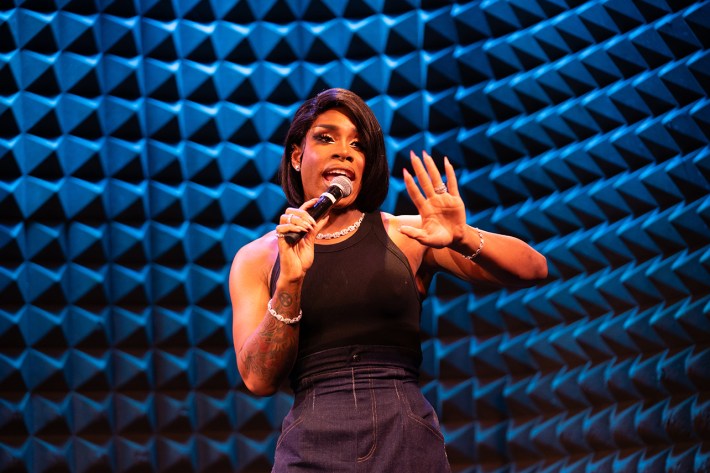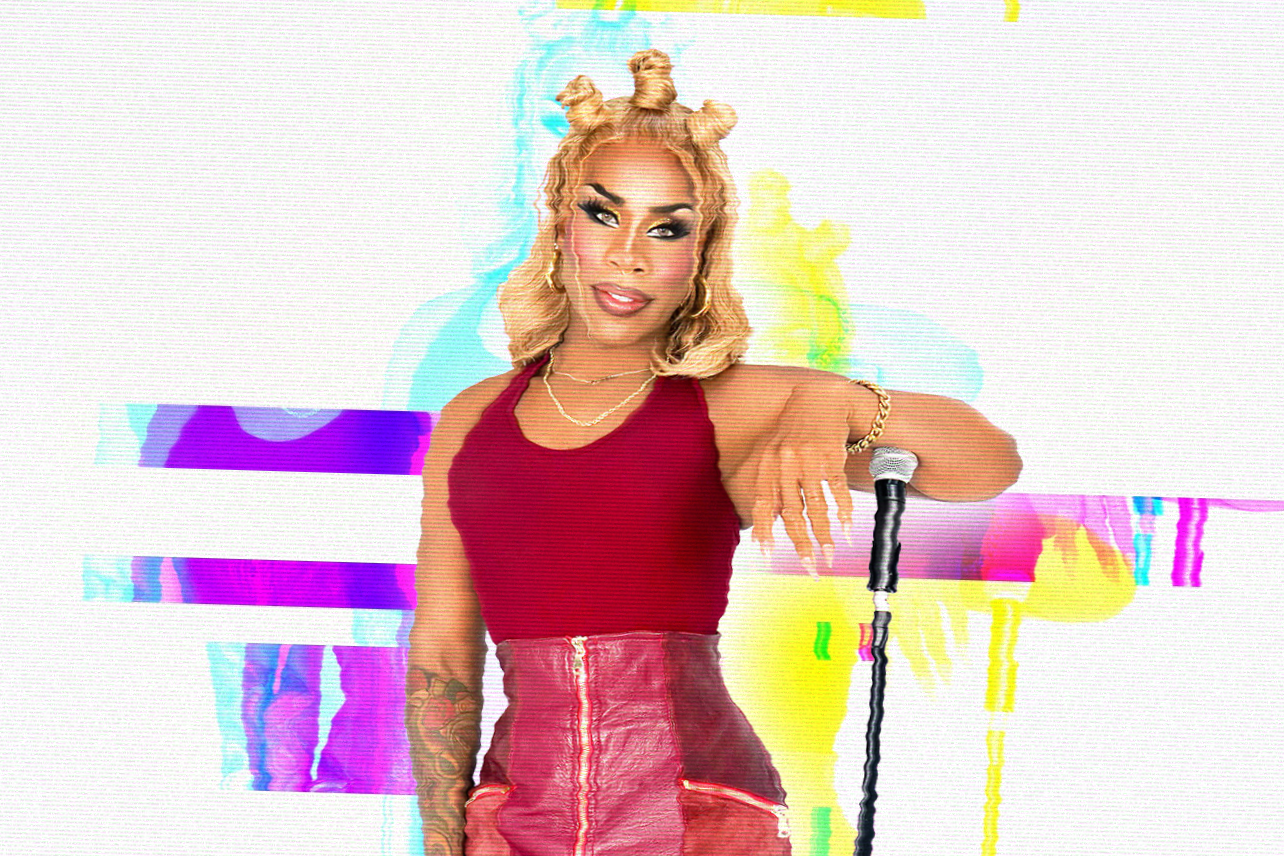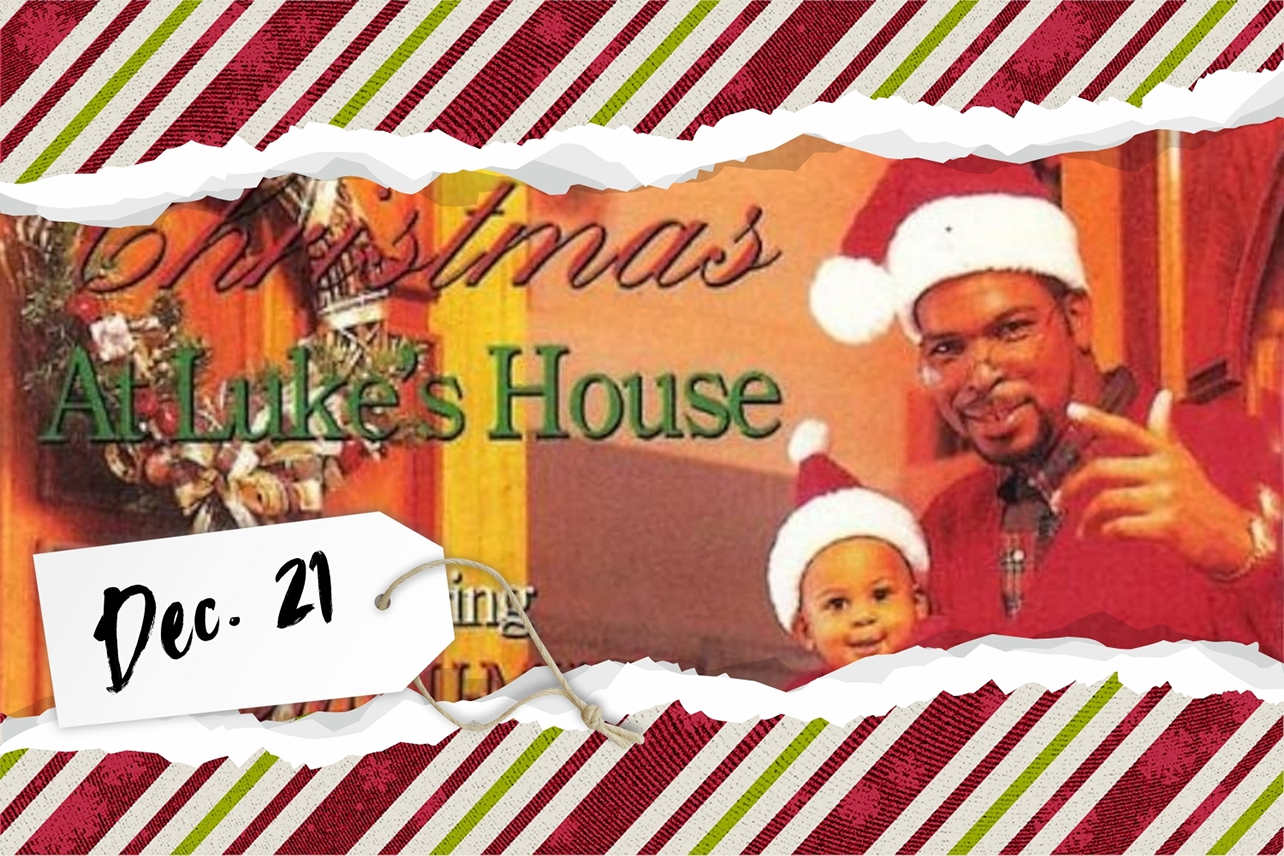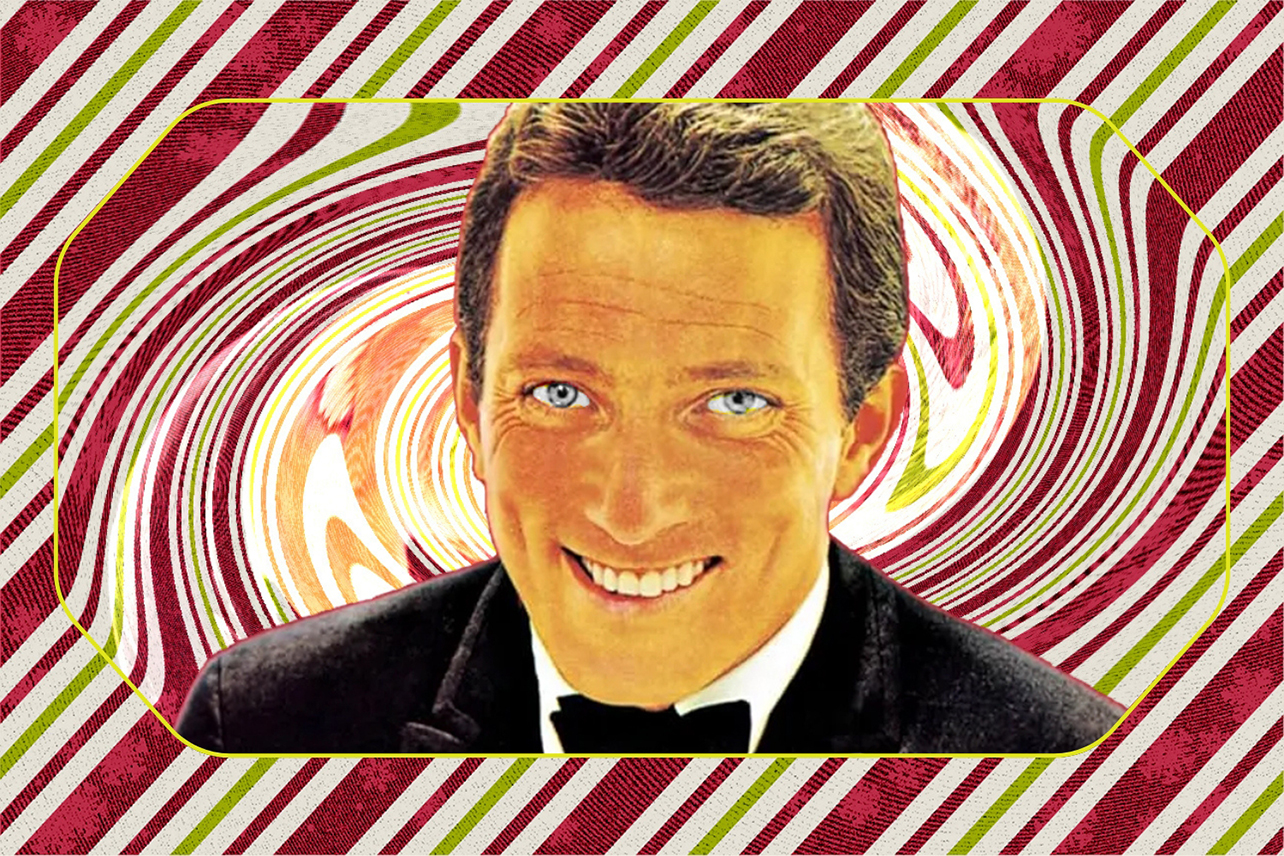How many skills does a queen need to add to her repertoire before she outgrows the title of multihyphenate? When describing Monét X Change, the title "omni-hyphenate" seems more apt, even if it's not really a title (yet?). Monét's already racked up a number of titles across three seasons of RuPaul's Drag Race, including that of All Stars 4's crowned queen and Season 10's Miss Congeniality. She's won lip syncs, girl group challenges, comedy challenges, and a makeover challenge, and has dominated improv and acting challenges. And, as if that's not enough, Monét X Change is also a trained opera singer — a skill she brought to Drag Race in her penultimate episode as a competitor. She's got that voice and she sat on that secret for almost three whole seasons?!
Following her iconic variety show moment in 2022, where Monét left the judges breathless following her performance of "Vi ravviso, o luoghi ameni" from Bellini's La sonnambula, this crowned queen fully united her passions for opera and drag, blazing a new trail for queer performers all over. Now Monét X Change is ready to present a brand new one-woman show, Life Be Lifin', an intimate tour de force the likes of which only Monét can serve.
Ahead of the launch of the Life Be Lifin' tour on Jan. 9, I had the opportunity to chat with Monét X Change about her passion for classical music, working with fellow drag icon BenDeLaCreme on the new show, and shaking things up at Lincoln Center.
Brett White: During Drag Race All Stars' all-winners season, we saw you perform an aria in drag for the first time, and you said you had trepidation about merging these two worlds. What was the source of that trepidation?
Monét X Change: I think in school — when you think of the bass, the bass is never really the star of the show, right? So the soprano, the tenor — mainly the soprano — and then the bass is always some supporting character. You're like the priest or some dad or the villain. And your voice is this low thing that is supporting these beautiful higher tones. I internalized a lot of that. I was like, "Oh, no one wants to hear a bass singing — especially in drag." No one wants to hear that or see that. And when I sang that aria on Drag Race and saw how people reacted to it, it was so affirming that people found beauty in how I sounded. And that juxtaposition of how feminine I am in drag and how elegant and beautiful that is juxtaposed to this low bass singing, I think, is something that people really celebrated and loved, and it made me fall in love with it.
And it's been such a success. When did you start actually pursuing it outside of Drag Race?
After All Stars 7, Ryan Taylor, who was the director over there at Minnesota Opera, he reached out. He got my contact from my friend Laquita Mitchell, who is a beautiful soprano, and he was like, "I got your contact from Laquita. I just wanted to know, would you be interested in doing a role with the Minnesota Opera?" And I was like, "Yeah, I would." And he had the idea of doing The Daughter of the Regiment, and there's a traditionally nonsinging role in that show, the Duchess [of Krakenthorp]. And he's like, "But if you do it, we'll put an aria in there" — what we call a suitcase aria, where you take an aria from somewhere else and just pop it in the show. And yeah, so I sang it there and it went over really well. We brought a lot of new faces to the Minnesota Opera, which is really cool. And then I took that and I just recently did it at Colorado Opera. And so now I'm becoming, like, the Duchess of the States, hopefully. I'm doing it everywhere. I love the role. It's fun. I pop into the show for just the second act only, and so it's a fun little role to do. I really enjoy it.
Drag makeup is quite different from theatrical makeup, so are you going in and doing everything yourself for these shows? Or are you turning yourself over to the opera company?
I'm doing it myself. I'm doing full Monet, full glam, full glitter, full contour, full everything. And I'm not opposed to doing something more period or something that feels more appropriate for that period, but when you come to see Monét, you come to see the doll. So I make sure I do my drag.
My husband talks about how loving opera today is so rare, but you studied it and you went to school for it. What drew you to opera initially?
I think what drew me to opera — I went to a performing arts school for high school in New York, and the the choir director there, Chantel Wright, she was really big on teaching us that classical music is an art form that is for you, that you just don't know. So she had us singing lots of anthems and spirituals and we'd do these works and sing the Fauré Requiem or the Schubert Mass in G. So in high school, I was developing this love for classical music. I still love choral music. Choral music is something I want to get back to doing, but with my schedule, it's hard to be part of a choir in any way, so maybe later on I can go back to choral music, because I love, love, love choral music. It is so majestic in its own right. But from there, she recognized that I had a beautiful instrument and she pushed me to audition, to do opera performance in college.
I think that music teachers, teachers in general, can have such a huge impact on kids, and she had a huge impact on me. So I wanted to do music ed in college, so I ended up doing music ed and opera performance and I ended up dropping the performance degree because I was doing so much of the same classes with the music ed degree anyway. So I was like, "I'm not paying these motherfuckers double the money to do music ed and opera." So I just did the music ed part, and it was great. Ms. Wright in high school really helped me see opera and classical music.
What I love about the pairing of opera and drag is that drag, as an art form, encompasses everything — even things you don't think it encompasses. And then when you do it in drag, it's like, "Yeah, this makes total sense." Like Trixie Mattel doing country music in drag, and she expressed a similar trepidation, like, "I can't play an autoharp in drag" — and then it makes sense. Now that you've been doing this more, are there any more similarities that you've noticed between the worlds of drag and opera?
I think the drama of it all. Opera is so over the top, so dramatic. Something we did in college, there's a class called "The Singing Actor" where, instead of having a whole bunch of words, you sing a song with one syllable, like "ah" or "ooh," and your job is to emote and evoke what the text and the music is saying with just singing one vowel. And I translated that to drag when I would lip sync these songs. I took a lot of those same tools I learned from that class in college and put that into my drag. And that honestly helped me be a very effective lip syncer, because throughout the song I'm not just only lip syncing what the text is saying. I'm also lip syncing to like what the music is saying as well. And that is what makes a dynamic lip syncer, someone who is doing more than just the text. They're doing the song, the music.
So now you've taken all these stories and put them into a new show, Life Be Lifin'. What was it like working with BenDeLaCreme as your director?
I wanted to talk with Ben, because Ben is so good at this. She has so many one woman shows that are so great. I've seen a few of them. I went up to her, I texted her, I was like, "Hey girl, I'd love to pick your brain because I want to do a one woman show, and how you do it is so beautiful. I just want to pick your brain about your process." So we had lunch and she gave me some insight, and then I took that information and I went to work. And then she hit me up a little shortly after that. She was like, "I would love to be more involved and direct the show, if you'd have me." I was like, "Absolutely." She was really helpful in helping me find the story I was trying to tell. I could go do a whole bunch of writing, writing, writing, writing, a lot of stuff, and then she would come back and she'd be like, "Okay, I like this. Tell me more about this thing." And it was just me, expounding upon these anecdotes I had. She would help me thread the needle of how these things all work together, and what is the biggest story that I was telling that I didn't realize I was telling.

You also do so much: You act, you podcast, you sing. When you're putting a show like this together, which can showcase all of your talents, how do you decide what actually goes into the show when you can do so much?
Yeah, I think the stories I'm telling have a big part to do with that. In this one specifically, I'm really talking about me finding my voice and what that looks like for me because it's something that I did have to find. I don't think that's something unique to me. I think a lot of people, when you're coming of age, you're finding out who you are, what your point of view is, how you see the world, and it just seemed like a natural thing to have my voice being centered around and finding this thing that has given me so much identity and success. So that's why I definitely wanted to put singing into it. And I think comedy is the natural way that I exist in the world. And I tell stories. I am always telling jokes. I'm never a serious person. I'm always unserious, so comedy and music felt like two natural ways that I should go in the show.
More recently, Sapphira Cristál performed an aria for her talent show number on the Season 16 premiere of Drag Race. Last summer you teamed up for a show at Lincoln Center, Soundcake. When did you first learn about this shared interest?
When I was in New York City doing my thing for all those years, Sapphira would come in here and there, but we never really worked together or interacted a lot in New York. I had heard that Sapphira was a singer, but I don't think I ever heard her sing. Maybe one time I did before I saw her doing it on [Drag Race]. I knew she could sing, but I didn't know the depth of her talent. Because, opera singers are so snobby and so gatekeep-y, like, you hear someone sings opera, you're like, "Sure, but can they sing?" And then obviously she did the Puccini on the show, which was so beautiful, and she came up to me, and she's like, "Hey, so I'm working with someone who has this opportunity with Lincoln Center, and I would love if you would come on to create this show. We can create it together." And then we spent ten months with James Blaszko, and we wrote this show that we did at Lincoln Center which was a huge success. Like, 3000 people came out to Damrosch Park outside of Lincoln Center to watch the show of us singing our favorite artists and our favorite songs, with Thorgy Thor. We incorporated Thorgy into the show. It was just this beautiful show that we hope to take on more and do it more with some more symphonies and operas around the country and around the world. I think more people deserve to see it. It was a really great show.
Like you mentioned earlier, there's gatekeeping in what's called high culture, which is usually depicted as affluent, rich, straight, white. There's something so cool and subversive and celebratory about seeing this queer influence making its way into those areas. I'm sure that isn't lost on on you when you're doing a drag opera show at Lincoln Center.
Yeah, it really isn't. I grew up in New York City. I remember after school me and my friends would go and get quarter waters and sit right outside Lincoln Center and fuck around and be eating 25-cent bags of chips and just never in my life thinking how one day all my overt queerness that I was suppressing back then and all that stuff would lead to me headlining my own show there 20 years later. It's all so, so, so beautiful.
What has the response been in general? When you meet fans now, are a lot of opera fans, like, coming out of the closet?
There are a lot of opera fans who are not secret. I think between queer spaces and opera, there's a lot of crossover there. When I specifically go to do these shows at these opera companies, they're kind of like, "Oh my God, we're so happy to have you here. You understand, how many of us at school when you were on your first season [of Drag Race]" — which makes me feel very old — "we were all in class watching your first season. We couldn't believe you were on the show because we love opera and you love opera." And I'm also from a music fraternity, Phi Mu Alpha, so many of them come up to me and they're like, "Oh my God!" They're all just so excited and proud to see a fellow opera-loving, opera-singing drag queen out there doing their thing.
Monét X Change's Life Be Lifin' tour kicks off on Jan. 9 at the Neptune Theatre in Seattle, WA, and continues across North America.






